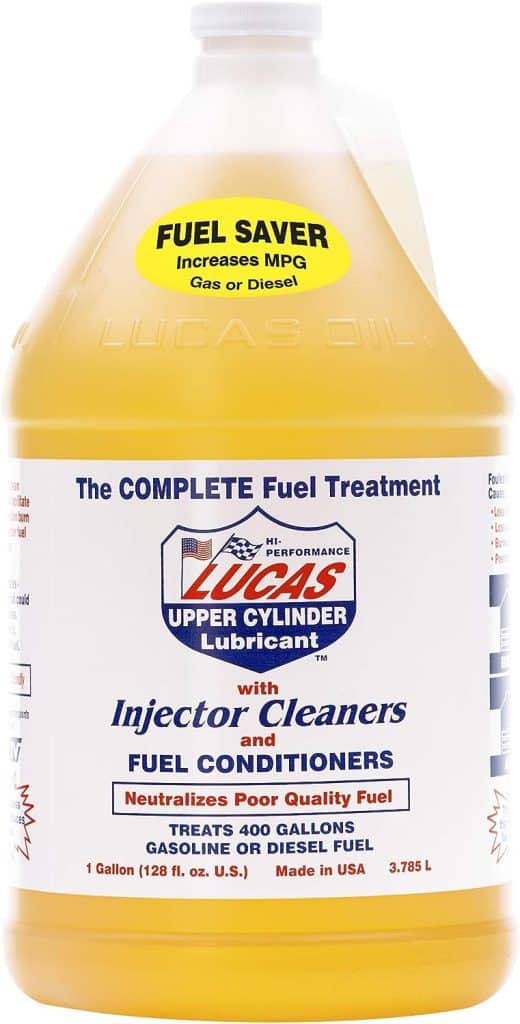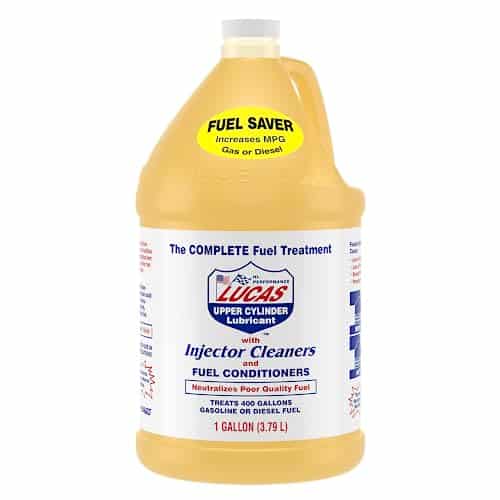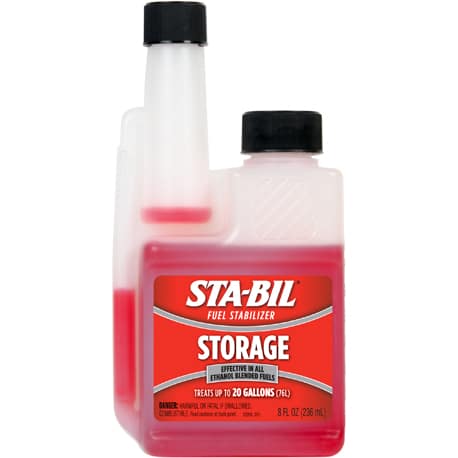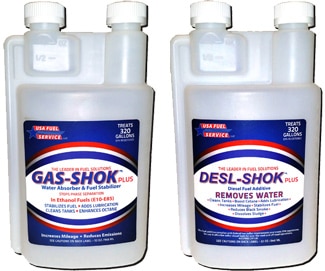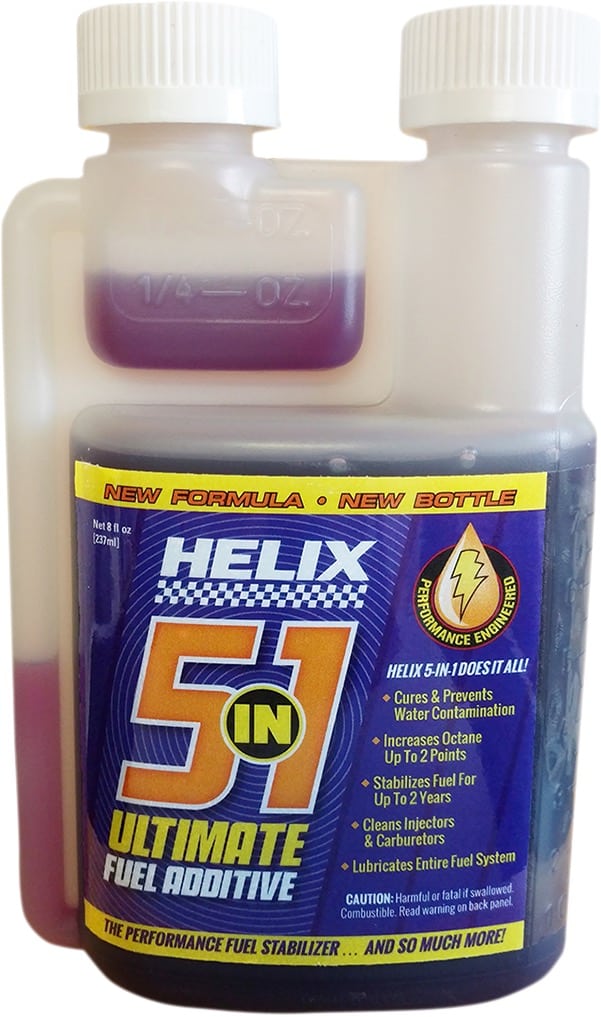Are you looking to maximize the performance and efficiency of your vehicle? Look no further! This article will guide you in choosing the suitable gas additive for your needs.
Whether you want to improve fuel economy, clean your engine, or boost power, we’ve got you covered.
Discover the key factors to consider, such as the type of additive, compatibility with your vehicle, and specific benefits. Say goodbye to guesswork and make an informed decision to enhance your driving experience.
1. Determine Your Needs
As vehicle owners, it is important to determine our needs before purchasing any gas additive. We can make a more informed decision by evaluating our vehicle’s performance, identifying specific issues, and considering our goals.
1.1 Evaluate Your Vehicle’s Performance
The first step in determining our needs is to evaluate our vehicle’s performance. Are you experiencing issues such as decreased fuel efficiency, rough idling, or difficulty starting? Understanding the current performance of our vehicle will help us identify the type of beneficial gas additive.
1.2 Identify Specific Issues
Once we have evaluated our vehicle’s performance, we must identify any issues we face. For example, we may need a cleaner fuel system if we struggle with poor fuel economy. On the other hand, if we are using an older vehicle, we might require an octane booster to improve engine performance. Identifying these specific issues will guide us toward a suitable gas additive.
1.3 Consider Your Goals
In addition to evaluating our vehicle’s performance and identifying specific issues, we must also consider our goals. Are we looking to improve fuel efficiency, boost performance, or reduce engine deposits? Determining our goals will narrow our options and allow us to choose a gas additive that aligns with our desired outcomes.
2. Understand the Types of Gas Additives
To make an informed decision, it is crucial to understand the various types of gas additives available in the market. Each type serves a different purpose and caters to specific needs.
2.1 Fuel Stabilizers
Fuel stabilizers are additives that help prevent fuel degradation and oxidation. They are instrumental when storing or using gasoline for extended periods. Fuel stabilizers can help maintain the integrity of the fuel and prevent the formation of harmful deposits in the fuel system.
2.2 Fuel System Cleaners
Fuel system cleaners are designed to remove deposits and residue from the fuel system, including the fuel injectors and intake valves. These deposits can accumulate over time, leading to decreased engine performance, reduced fuel efficiency, and rough idling. Fuel system cleaners can restore the cleanliness and efficiency of the fuel system.
2.3 Octane Boosters
Octane boosters are additives that increase the octane rating of gasoline. Higher octane levels can prevent engine knocking and improve overall performance. This is especially beneficial for vehicles with high-compression engines or older vehicles that require a higher octane rating.
2.4 Fuel Injector Cleaners
Fuel injector cleaners are specifically formulated to clean and unclog fuel injectors. These additives remove deposits that can accumulate in the injectors over time, leading to fuel flow restrictions and poor engine performance. Fuel injector cleaners ensure proper fuel atomization and combustion by keeping the fuel injectors clean.
2.5 Ethanol Treatments
Ethanol treatments are additives designed to counteract the adverse effects of ethanol in gasoline. Ethanol can attract moisture, leading to fuel system corrosion and decreased fuel efficiency. Ethanol treatments help stabilize the fuel and protect the fuel system against the harmful effects of ethanol.
2.6 Diesel Additives
For diesel vehicle owners, considering diesel additives is essential. Diesel additives can improve fuel quality, enhance lubrication, prevent fuel gelling in cold weather, and minimize injector deposits. They are specifically formulated to address the unique needs of diesel engines and can optimize their performance.
3. Research Brands and Products
Once we familiarize ourselves with the gas additives available, we must research different brands and products. This will help us make an informed decision and choose a reputable and effective gas additive.
3.1 Read Customer Reviews
Reading customer reviews can provide valuable insights into the effectiveness and reliability of various gas additives. By considering the experiences and opinions of other vehicle owners, we can gauge the performance of different brands and products. Look for feedback related to specific issues you are trying to address.
3.2 Check Manufacturer’s Claims
It is also essential to check the manufacturer’s claims regarding gas additives. Look for reliable and reputable brands with a record of producing quality products. Manufacturers who provide detailed information about the benefits and ingredients of their additives are more likely to be trustworthy.
3.3 Consult with Mechanics or Experts
If you are unsure which gas additive to choose, consulting with mechanics or experts in the field can be helpful. They can provide valuable guidance based on their experience and knowledge. Mechanics often have insights into vehicles’ specific needs and requirements, significantly assisting decision-making.
4. Consider Compatibility and Consequences
Before purchasing a gas additive, it is crucial to consider compatibility with our vehicle and any potential negative effects. This will help us avoid adverse consequences and ensure the gas additive is safe and effective.
4.1 Check Compatibility with Your Vehicle
Not all gas additives are compatible with every vehicle. Check the product’s label or packaging to suit your make and model. Incompatibility can damage the fuel system or engine, so choosing the suitable gas additive for your vehicle is essential.
4.2 Assess any Potential Negative Effects
While gas additives are generally safe to use, assessing any potential adverse effects is essential. Some additives may cause increased emissions, engine damage, or reduced fuel efficiency if misused or in excess. Reading the product instructions and understanding potential risks will help us make an informed decision.
4.3 Consider Environmental Impact
As responsible vehicle owners, we should also consider the environmental impact of our chosen gas additive. Look for additives that are eco-friendly and have minimal impact on the environment. Considerations such as biodegradability and lack of harmful chemicals can guide us towards a more environmentally friendly option.
5. Compare Prices and Value for Money
Comparing prices and assessing the value for money is essential in choosing the suitable gas additive. While we want to stay within our budget, it is also crucial to consider the concentration and dilution ratio and the product’s longevity and frequency of use.
5.1 Compare Prices from Different Brands
Take the time to compare prices from different brands and manufacturers. Consider the reputation and reliability of each brand, as well as the specific features and benefits of their gas additives. While cost is a factor, it should not be the sole determinant in our decision-making process.
5.2 Assess Product Concentration and Dilution Ratio
Understanding a gas additive’s concentration and dilution ratio can help determine its overall value for money. A higher concentration and a lower dilution ratio can indicate a more effective product that requires less frequent usage. This can result in long-term cost savings and better overall performance.
5.3 Evaluate Longevity and Frequency of Use
Consider how frequently the gas additive needs to be used and the expected longevity of its effects. Some additives may provide long-lasting benefits with infrequent usage, while others require more frequent application. Evaluating the longevity and frequency of use will help determine the overall value and convenience of the gas additive.
6. Seek Recommendations and Advice
In addition to our research, seeking recommendations from other vehicle owners and trusted sources can provide valuable insights into choosing a suitable gas additive.
6.1 Consult with Other Vehicle Owners
Talk to friends, family, or colleagues who own vehicles and ask about their experiences with gas additives. They can provide firsthand information on the effectiveness and benefits of different brands and products. Hearing about their experiences can help in making an informed decision.
6.2 Ask for Recommendations from Trusted Sources
Seeking recommendations from trusted sources, such as mechanics, automotive forums, or online communities, can provide valuable advice. These sources often have a wealth of knowledge and experience with different gas additives and can offer insights into their effectiveness and suitability for specific vehicles.
7. Consider Personal Preferences and Beliefs
Our preferences and beliefs can also play a role in choosing the suitable gas additive. Factors such as organic or eco-friendly additives and brand reputation or trustworthiness may be necessary for some vehicle owners.
7.1 Preference for Organic or Eco-Friendly Additives
Choosing organic or eco-friendly gas additives might be a priority for those who prioritize environmentally friendly products. These additives are formulated with natural ingredients and have minimal environmental impact. Researching and selecting brands that align with our eco-conscious beliefs can help us make a more sustainable choice.
7.2 Consideration of Brand Reputation or Trustworthiness
Brand reputation and trustworthiness can be another critical factor for some vehicle owners. Choosing gas additives from reputable brands with a proven track record can provide peace of mind and quality assurance. Look for brands that have positive customer reviews and are known for their commitment to producing reliable and effective additives.
8. Consult Your Vehicle’s Manual or Manufacturer
To ensure compatibility and proper usage, consult your vehicle’s manual or contact the manufacturer for guidance on recommended gas additives.
8.1 Check for Recommended Additives
Your vehicle’s manual may provide specific recommendations for gas additives that suit your vehicle. It is advisable to follow these recommendations as they are tailored to your vehicle’s unique needs.
8.2 Follow Usage Instructions and Recommendations
In addition to recommended additives, your vehicle’s manual will provide instructions and recommendations on adequately using gas additives. Following these guidelines will ensure you use the additive correctly and maximize its benefits while minimizing potential risks.
9. Assess the Overall Benefits and Effects
Before making a final decision, assessing the overall benefits and effects of the gas additive under consideration is essential.
9.1 Evaluate Improvements in Fuel Efficiency
Consider the potential impact of the gas additive on fuel efficiency. Will it help optimize the combustion process and improve mileage? Look for additives that enhance fuel efficiency and reduce fuel consumption.
9.2 Consider Impact on Engine Performance
Evaluate how the gas additive may affect engine performance. Will it enhance power delivery, acceleration, or throttle response? Look for additives to boost engine performance and improve the driving experience.
9.3 Analyze Reduction in Deposits or Buildup
Consider how the gas additive can address and reduce deposits or buildup in the fuel system. Will it effectively remove and prevent the accumulation of harmful deposits? Look for additives with a proven track record of keeping the fuel system clean and free from deposits.
9.4 Assess Long-Term Benefits and Cost Savings
Finally, assess the long-term benefits and cost savings of using the gas additive. Calculate the potential savings in fuel costs, repairs, and maintenance over time. Look for additives that provide lasting effects and justify the cost through long-term benefits.
10. Make an Informed Decision
After considering all the previous factors, it is time to decide on the suitable gas additive for your specific needs.
10.1 Weigh the Pros and Cons
Consider the advantages and disadvantages of each gas additive option. Review the most important factors to you, such as compatibility, effectiveness, environmental impact, and personal preferences. Weighing the pros and cons can help narrow your choices and make a confident decision.
10.2 Consider Your Budget
Take your budget into consideration. While choosing a gas additive that meets your needs is essential, staying within your financial means is equally important. Look for options that offer a good balance between effectiveness and affordability.
10.3 Select the Right Additive for Your Specific Needs
Based on all the research and considerations, select the gas additive that best aligns with your specific needs, goals, and preferences. Consider compatibility with your vehicle, recommendations from trusted sources, and the benefits and effects of the chosen additive. By making an informed decision, you can optimize your vehicle’s performance and ensure a smoother and more enjoyable driving experience.

